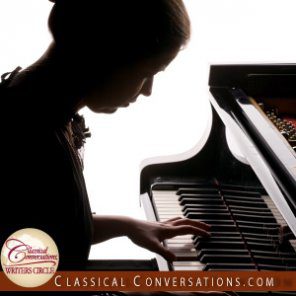Media and culture repeatedly preach musical taste as having something inherently associated with who you are as an individual, what you value, and your meaning as a person. This is why many of us have “favorite” bands or artists. We may even take offense when others do not like our favorite bands or artists. We all desire to be associated with certain music. People crave this association to the point that they may even dress like the artists they love listening to. Clothing styles and music genres are increasingly becoming more uniform within popular music trends; this tells us that music has an enormous power over us. Our musical tastes often serve as the “engine” for this influence. Musical tastes are important, but we rarely stop and ask why we prefer specific music or how our musical tastes were developed. Have we ever considered that we might need better tastes in music? Do we assess our musical tastes and choices? It is this lack of self-awareness that has led many of us to treat music more as a medium for our individual pleasure than as a God-given design to glorify our Creator and encourage one another.
Valuing versus Liking
Musical taste is often used in referring to artists or genres that we, the individual, like or do not like. In one sense, musical taste has been reduced to the individual “liking” a piece of music. Liking a piece of music is far different from valuing a piece of music. In order to value something, observations have to be made and questions need to be asked. Research, study, and effort become crucial for effectively saying that a piece of music carries some kind of value. In order to value a piece of music one must learn the reasons for its value. Liking a piece of music does not necessarily lend itself to any kind of learned response. It is all about the individual and the moment. Moral, aesthetic, and logical criticisms carry no weight when musical taste is merely subjected to our likings. Why do we like it? Should we like it? How do we know if we should like it? Our affections for music and therefore our musical tastes must be thought of as a learned skill so that we can value that which should be valued.
In general, American culture treats music as an escape. Music, like fast food, is often used for the individual’s instant gratification. If we treat musical taste in connection with the word “value” as opposed to “liking,” we will approach music and art with much more integrity. I suggest we listeners have a moral responsibility to the music we put in our ears and we should be more concerned about valuing music for the sake of others as opposed to liking music for our own pleasures. Therefore, we approach our musical tastes within a context of music education in recognition that music is not all about the individual.
The Role of Parents
Parents have an incredible amount of influence on their children’s musical taste and, therefore, they have a large influence on their children’s music education. Typically, if parents themselves have not had valuable experiences in music, they will not see value in teaching their children a love for music that goes beyond “liking” specific genres or artists. In other words, we parents must not expect our children to cultivate appropriate responses to music and pop culture if we ourselves are not modeling these appropriate responses. It is also important to recognize that parents are always modeling some kind of response to music and culture for their children. I still love the bands REO Speedwagon, Chicago, and Boston because of my dad’s love for these bands. My dad inadvertently taught me that 70s music is far better than any other recent decade of music. Whether or not my dad was trying to teach me about music, he did. We parents are currently training our children how to respond to music regardless of whether or not we know we are doing so. Therefore, our teaching must be steeped in biblical wisdom. This must involve discussions with our children about music and their music choices.
With older kids, ask questions. Ask them why they value the music they choose to listen to and then model for them why you value an artist or piece of music. These discussions can be valuable opportunities not only to teach the value of music, but also to show them that you value them, their tastes, and their gifts.
With younger children, there will not be as many questions or discussions as there will be plain experiences in wonderful music literature. As I was growing up, my mom constantly had music playing in the house. The music of Bach, Handel, John Rutter, Keith Green, Michael Card, and Fernando Ortega became part of the nostalgia of my childhood. As I got older, I “rejected” this music as I exerted my freedom to listen to my choice of music. As an adult, I found myself returning to the music I was raised on. In many ways, the mere experiences with the appropriate music of my childhood had a significant influence in “bringing me back” from my selfish musical tastes in music. My tastes in music were being formed at a young age whether or not I knew they were at the time. If we work hard to expose our children to beautiful music when they are young, it may be those experiences in beauty that God uses to steer them back to himself when they are older.
If we parents want to cultivate a love for music in our children which seeks to honor music as a gift from God, we must purposely seek to nurture critically intelligent approaches toward musical styles and forms while giving discernment to different contexts and experiences. In other words, parents have a responsibility to their children to help cultivate good musical tastes and good musical habits. Are we giving our children valuable music experiences when they are young? Are we training our children how to value music when they are older?
Against Subjectivism
There is no bad or good musical taste. Musical taste is merely a matter of preference. Subjectivism in musical taste is part of our American culture and continues to shape how we think about musical taste. The skewed view that musical taste is merely a matter of preference needs to be critiqued by the following question: “Why do we have preferences at all?” In general, musical preference is determined by what an individual decides to be good music. If we think about it, no one really believes that music is merely subjective due to the fact that we all have preferences. A more appropriate description of American subjectivism in regards to musical taste is a non-critical approach to music you do not like. This way, we can pick and choose what we like without the hardship of defending why we like “x” music and why we do not like “y” music. Anyone attempting to defend good or better music preferences is often viewed as a snob or elitist. Sadly, these snob or elitist labels are used correctly because the defense for better preference or taste is handled so poorly, often times in arrogance or ignorance. Subjectivism in music rules the day because the majority of those who want to speak otherwise do not know how to do so wisely and winsomely.
A “New” Taste
For a variety of reasons, musical taste is an idea I have always struggled with. Throughout my continuing journey of pursuing good, appropriate music I have found my musical tastes being constantly infringed upon. Throughout this process, I have realized my love for music lies much more within a love for myself than in a love for God and others. The idea that musical taste is an acquired skill was initially offensive to me. I immediately found myself contemplating all that I would have to give up in order to train my ears to appreciate other kinds of music. However, this was a completely naïve reaction to what musical taste is and what true music appreciation means. Efforts made in developing your musical ear do indeed mean giving up some of your self-gratifying desires, but you sacrifice only to gain so much more. Think about musical taste as an analogy of gospel living. Scripture teaches us that if we want to live we must die (Mark 8:35). Jesus’s message to the rich young ruler to sell all that he had (Luke 18) was, no doubt, a rebuke, but it also contained the truth behind why we give up the “old” and put on the “new” (Ephesians 4). The “new” is real. The “new” is God’s desire for us so that He can continue to lavish himself upon us. “New” in this sense means more! So give your students and your children “new” music and teach them how to value music in ways that honor God and are oriented toward others.




